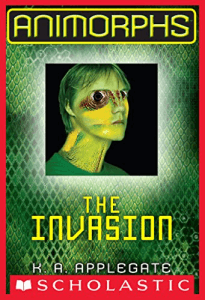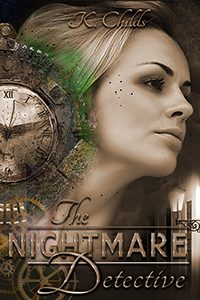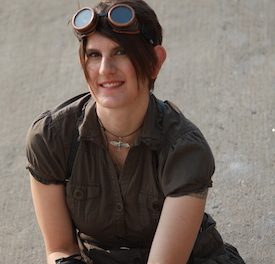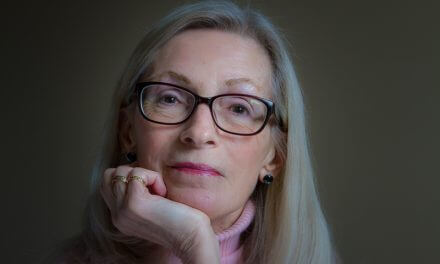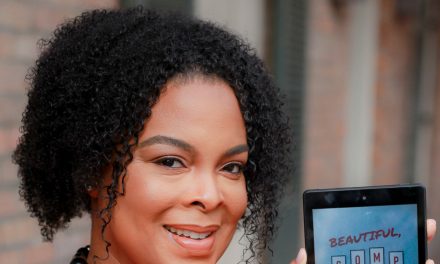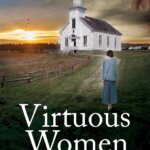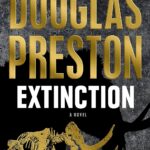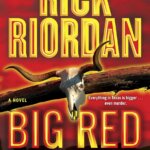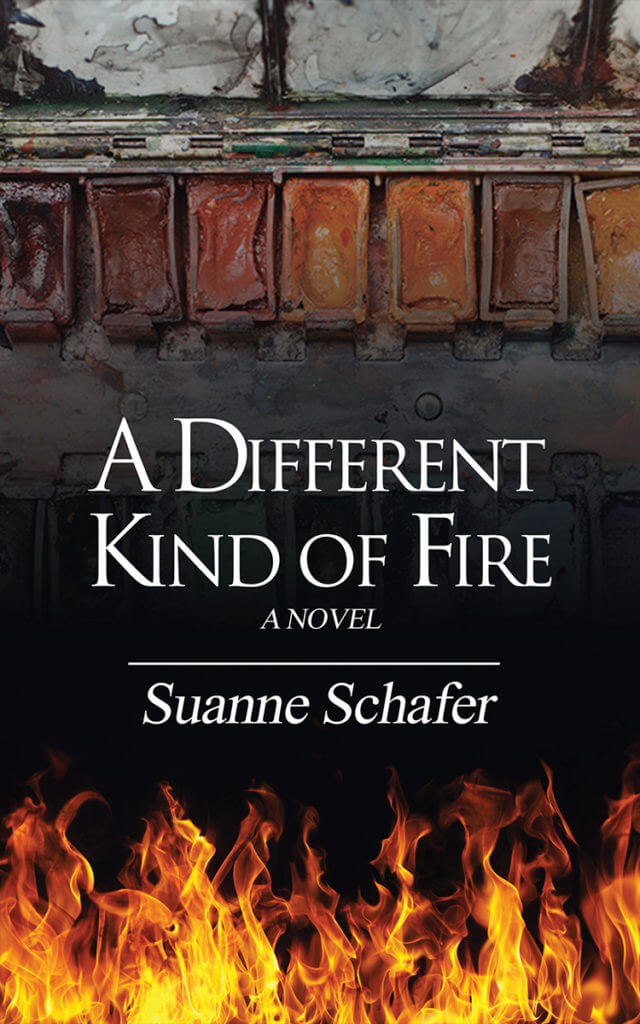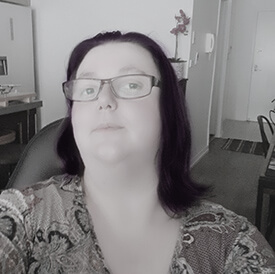
KC: The year is 1920, and London’s Dreamscape is under attack. Defending the border between worlds is His Majesty’s Agency of Oneioronautic Crimes and the top agency detective is Rose Beaumont.
When a prominent noble and her own cousin are murdered, Rose is swiftly placed on a case to protect a promiscuous Duke and find a terrible monster.
In a city recovering from WW1, there’s a Duke in distress to rescue and murder most foul to solve.
SS: Where did you get the idea for The Nightmare Detective?
KC: A combination of ‘which Disney princess is the least heroic/active’ and how to change a narrative where the damsel in distress is flipped about. Plus, everything is better with murder.
SS: What’s the story behind the title? Who came up with it? Did your publisher change it?
KC: The title was the work of five seconds inspiration and obviousness. It went ‘dream detective sounds too bright and cheery, what’s a more fitting word to evoke dark and dangerous?’
SS: No spoilers, but tell us something we won’t find out just by reading the book jacket.
KC: The Nightmare Detective is a whodunit. You will not discover this by reading the jacket.
SS: Tell us about your favorite character.
KC: My favorite character is actually Professor Hadigan. He shows up again in A Study in Shadow, book 2, but I really fell in love with him in this book. The slightly ditzy academic is such an adorable guy to me!
SS: If you could spend a day with one of your characters, who would it be and what would you do?
KC: Definitely Professor Hadigan! He’s studied magic, and we could have a great academic discussion! Rose is too grumpy and strict—we wouldn’t get along at all!
SS: Are your character based on real people, or do they come from your imagination?
KC: Rose is based on an army officer my mother was friends with. A very strict, rigid woman, who as a child scared and intimidated me, but as an adult, is something of an inspiration for women in positions of power. Our dear Duke Montagu is a composite of the classic ‘dashing rogue’ prince, and there was actually a Montagu family that died out in the 1800s, so I sort of decided to play ‘what if’ with the family tree.
SS: How long did you take to write this book from drafting to publication?
KC: Twenty days to write it, about fifteen days for my own rewrites and edits. I signed my contract about two months after I’d written the words ‘the end.’ Now, two years later, the book is entering the public world.
SS: What kind of research did you do for this book?
KC: I’ve never been to London, much less, London of the 1920s. So I had a combination of google maps, 1920s historical maps, major historical events, women in uniform, the suffrage movements, WW1 ecconomic depression details … and popular baby names of the century. I dug up a lot on nobility to find a dead but feasible family for Darrien. Probably the heaviest research was in dirigibles (rigid and inflated) and steam technology, as well as the scientific breakthroughs that were all starting in the times.
SS: What did you remove from this book during the editing process?
KC: A lot of British English terminology that doesn’t make sense for my American audience. There are a lot of specific turns-of-phrase, cultural terms, and the like that we decided to change or cut. I also did some censorship on terms that would have been used back in the 1920s, that aren’t culturally appropriate now.
SS: Are you a plotter or a pantser?
KC: Both. I normally pants the vast majority of my story, but as this was my first time writing a murder mystery I deliberately wrote down my major notes, clues and whodunnits. This saved a lot of potential inconsistencies.
SS: What is your favorite part of your writing process, and why?
KC: The first few lines, and the day right after you write ‘the end.’ Starting a fresh story is so full of fun and potential, and then, when you’ve finished a story, there’s this insane cathartic release in your body. That high after finishing a project is second to none for me.
SS: What is the most challenging part of your writing process, and why?
KC: 25,000-35,000 words. This 10k stretch of prose is the uphill screaming of my writing adventure. If I’m stalled on a story, it’s normally in this section and it’s normally because this section can only be escaped a letter at a time for my poor soul. Every writer has a hard stretch where the words don’t feel like they’re flowing, where you doubt your existence and life purpose. If it was easy, the famous authors say, everyone would do it.
SS: Can you share your writing routine? (e.g. How do you carve out your writing time? Where do you normally write?)
KC: I live alone with no pets, siblings, spouse, or other distractions. I write normally in the afternoon/evenings on weekdays. On weekends I might write in the morning, but my juices flow best in the afternoons. I only have to carve out time if I’ve been distracted with things like television, comics, or games. Otherwise, there’s no excuse for my not writing. As for my routine; I set a small goal for the session and aim to achieve it or near as my brain can manage. This trick is something I picked up from fifteen years of NaNoWriMo veteran battles. Small daily goals are more achievable then big nebulous ones.
SS: Have you ever gotten writer’s block? If yes, how do you overcome it?
KC: My version of writers block is called laziness, and it’s normally because I need a break or recharge of my creative juices. If words just aren’t flowing for me, I probably want to finish that new anime episode more than I want to write, or I am hungry. So if I have a sandwich and watch that new episode, then go back to write, I’m usually better. If I pause in a chapter because I’ve hit a mental wall, it means I’ve forgotten to blow something up. 90% of my writing stagnations are because the pacing has stumbled. Wanton explosions are how I solve these things.
SS: If you could tell your younger writing self anything, what would it be?
SS: Enter more competitions. They are mostly free when you’re under 25. After that, people start charging. And doing well in competitions makes it look shiny on your author bio.
SS: How many unpublished and half-finished books do you have?
KC: Hundreds. I’ve been writing ‘seriously’ since I was twelve. Luckily most of it never left the dusty floppy disks they were stored on.
SS: Do you have any writing quirks?
KC: I abuse semi-colons. If I have a choice between a semi and a comma, I will semi. My grammar is a little odd for my editors as I have Australian English rules, but my editors are in America so when we convert documents, occasionally they add vowels in words or take them out, etc.
SS: Tell us about yourself. (e.g. day job, family, pet, etc)
KC: I’ve been in IT for seven years. I started on the help desk—telling people to turn it off and on again, resetting passwords. Not at all what I studied at university, being Japanese and Korean. I wanted to be a language teacher, but university is expensive, and I needed to give it up to do full time work. As a result of my language obsession I’ve got a really deep appreciation of Asian culture and history, and school-trips have turned me into a total hipster foodie.
SS: How did you get into writing?
KC: When I realized that I wouldn’t grow up to be a fairy princess, I discovered I still thought about them constantly and enjoyed books about them. When I was eleven or so, I got a gold star on a short story and decided to make the volatile career change from aspiring to be a princess to writing about them. I told my mother, very seriously, this would be my career. My mother, very famously said “I don’t care what you are, as long as you’re a good one,” (in aged retrospect, she may have borrowed this quote from somewhere, but as a tender preteen, I thought it was very profound and committed the discussion to eternal memory.) I, naturally, became very serious about it. I wrote constantly and often from then on. I had a double-English major in college (I was only a few classes off a triple, and if I never write another essay it will be too soon.) Studied creative writing in University and had no illusion that I would make lots of money with writing, only that I would aim to be ‘good.’
SS: What do you like to do when you’re not writing?
KC: I read comics and manga, I watch television, play video games. I actually don’t have a single non geek or nerdy hobby. I’m a second generation Dungeons & Dragons child, I have a gaming computer with a light-up keyboard.
SS: Apart from novel writing, do you do any other kinds of writing?
KC: I blog about writing.
SS: Share something about you most people probably don’t know.
KC: I’m part Aboriginal. My maternal grandmother was stolen generation. I think that’s where I get my gorgeous hair from. The hobbit feet I’m going to attribute to my dad’s side of the family.
SS: Which book influenced you the most?
KC: This is clearly a trick question for a voracious reader. I suppose, I would have to say, the first Animorphs (K.A.Applegate) book. Until I was about eight, I had a lot of reading difficulties in school. One day in a bookshop with my mother, I picked up the first Animorphs book, and I was able to read it. I begged my mum for the book, and my reading level went from needing remedial classes to advanced in about two weeks (the teachers must have thought I was possessed.) Turns out I just needed alien invasions and first-person narrative to jump start my reading heart
SS: What you working on right now?
KC: At the moment I’m working on the edits of Myth and Magic books 2 and 3. But I’ve got a Chinese Fantasy YA that I’ve been brewing in a cauldron and that’ll be my next project.
SS: What’s your favourite writing advice?
KC: When in doubt, have a man walk in with a gun. I first heard this in a Writing Excuses podcast, but I’ve heard it in various forms over the years elsewhere. My own version is ‘if it’s slowing down, blow something up.’
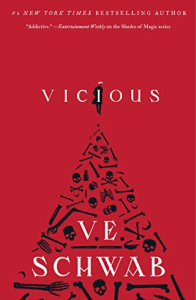
KC: I just picked up Vicious by V. E. Schwab. I love superheroes, so I’m pretty excited about it.
********************
In The Nightmare Detective, Sleeping Beauty meets Sherlock Holmes.
The year is 1920 and London’s Dreamscape is under attack. Defending the border between worlds is His Majesty’s Agency of Oneioronautic Crimes and the top agency detective is Rose Beaumont.
When a prominent noble and her own cousin are murdered, Rose is swiftly placed on a case to protect a promiscuous Duke and find a terrible monster.
In a city recovering from WW1, there’s a Duke in distress to rescue and murder most foul to solve.
********************
The Nightmare Detective is available through:
********************
Kristy can be found here on social media:
